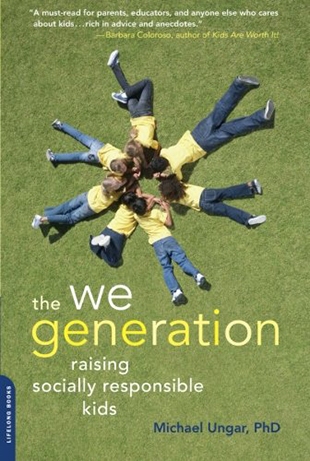An internationally recognized expert on the resilience in youth, Michael Ungar, is a clinician and research professor at the School of Social Work at Dalhousie University. When someone mentions how "connected" kids are today, we usually think about their avid use of text messaging, Facebook, MySpace, Twitter, online gaming, or YouTube. But Ungar is more interested in the ways in which youth connect with parents, relatives, peers, and the people in their communities. He is hopeful that kids can move from Me-thinking to We-thinking. Much of this depends on parents modeling empathy, compassion, responsibility, accountability for their actions, and a high regard for community.
In contrast to the hyperindividuality of the Me Generation, Ungar contends that the We Generation can adhere to a new standard by: (1) understanding its capacity to connect with others, (2) seeing the world as a very small place and that all our actions affect others, and (3) believing that we have a responsibility to others — we are all in this together.
Based on his research and interviews with adolescents throughout his career, the author discusses the importance of attachments to others; the dangers of selfishness, alienation, exploitation, and disenfranchisement; the importance of touch in the lives of children; the necessity for parents to educate their offspring in emotional literacy; the anonymity many youth feel in big houses in the suburbs; and the continuing challenges to help youth feel a deep and lasting commitment to local communities. Unger's emphasis on empathy, compassion, kindness, and other character qualities is refreshing.
